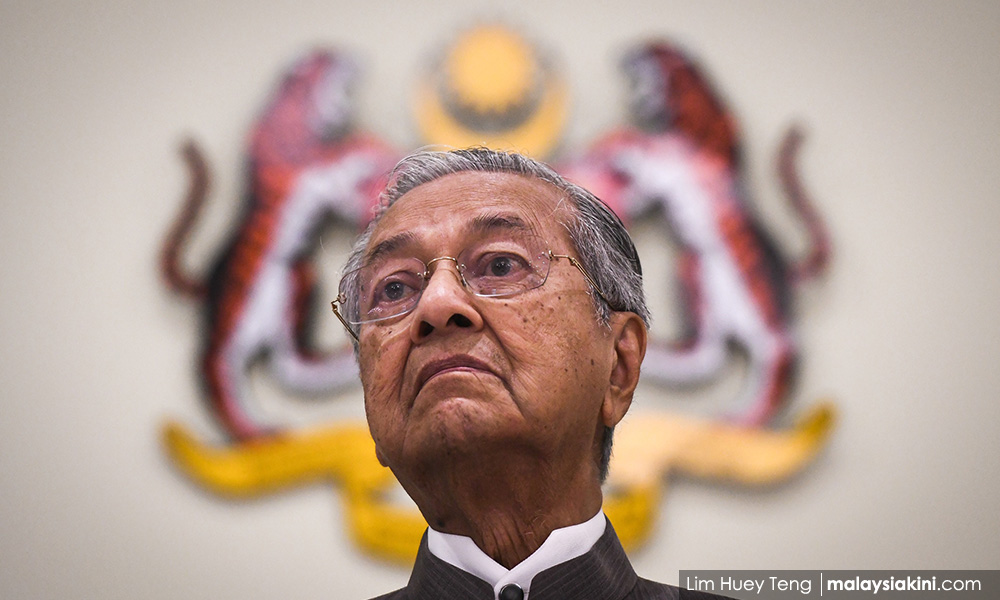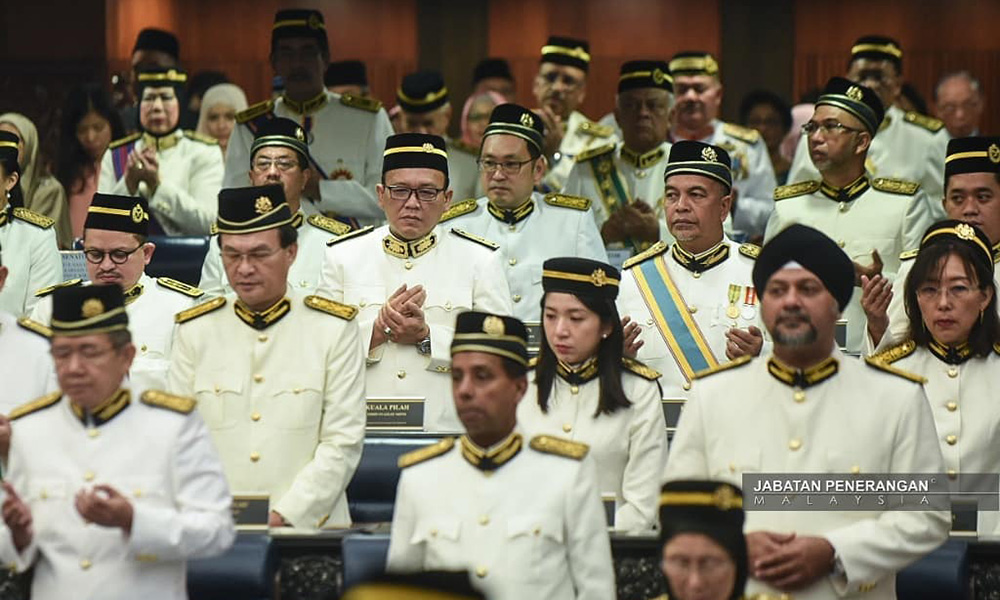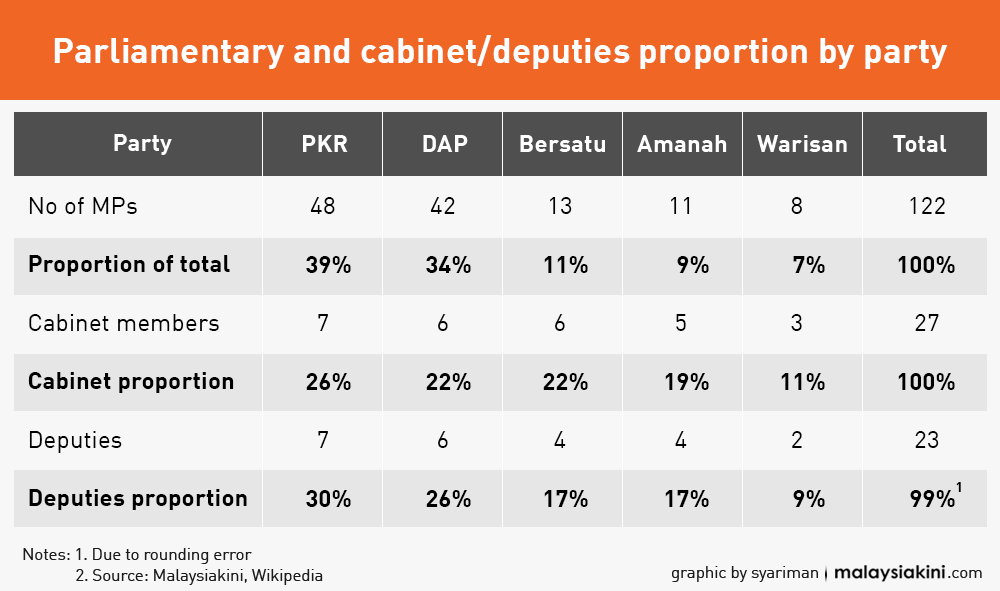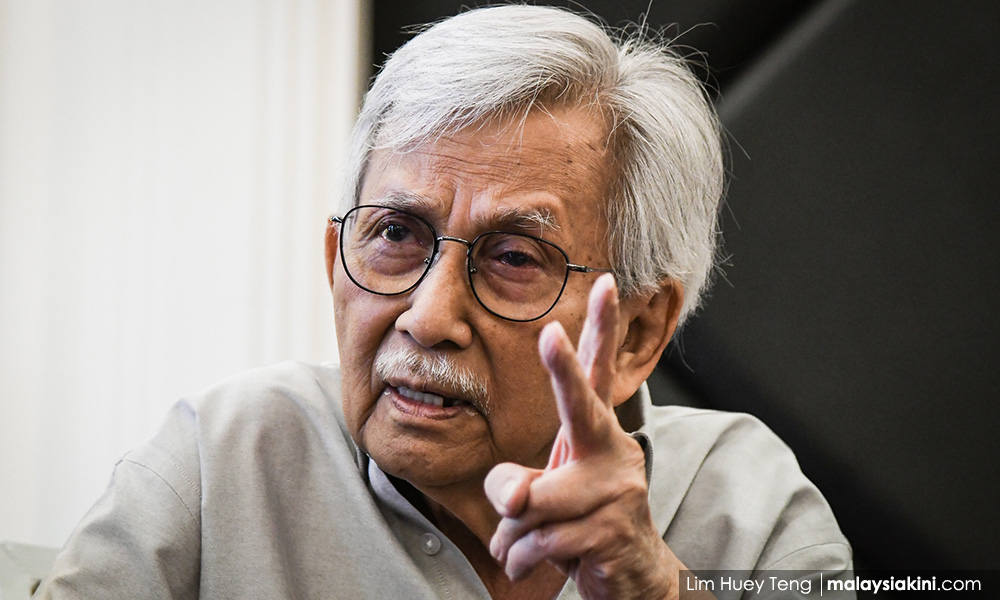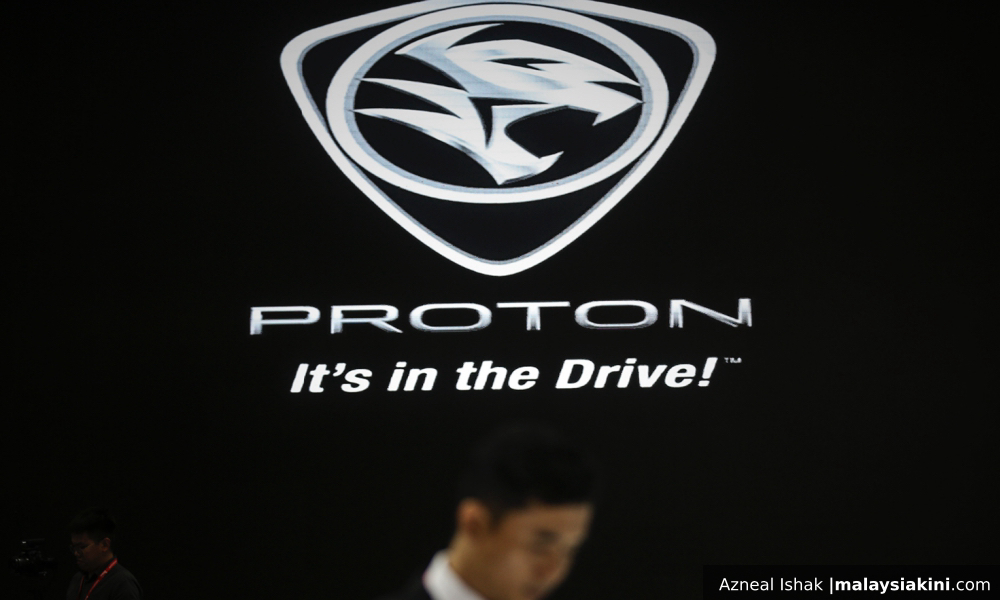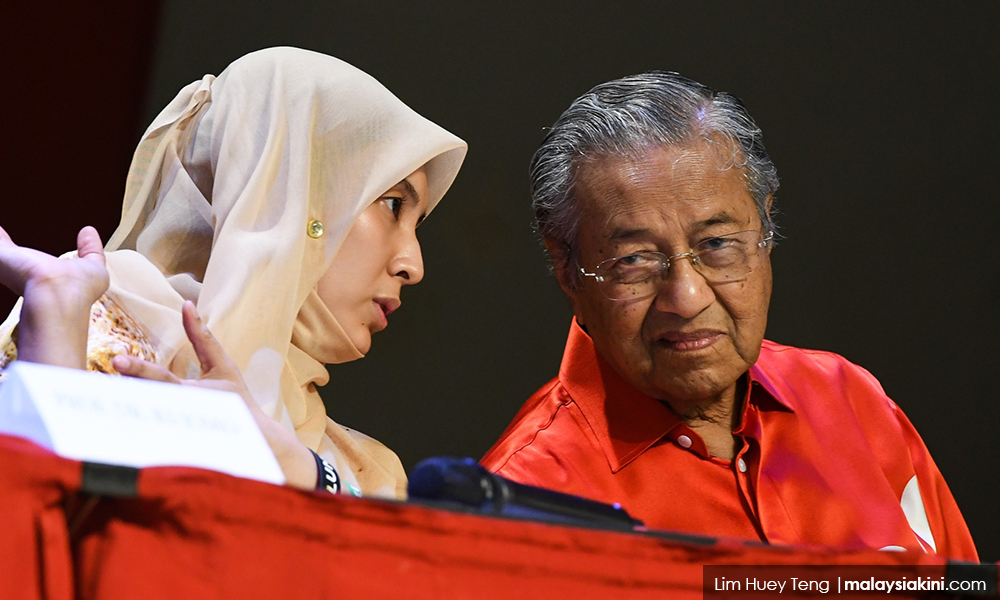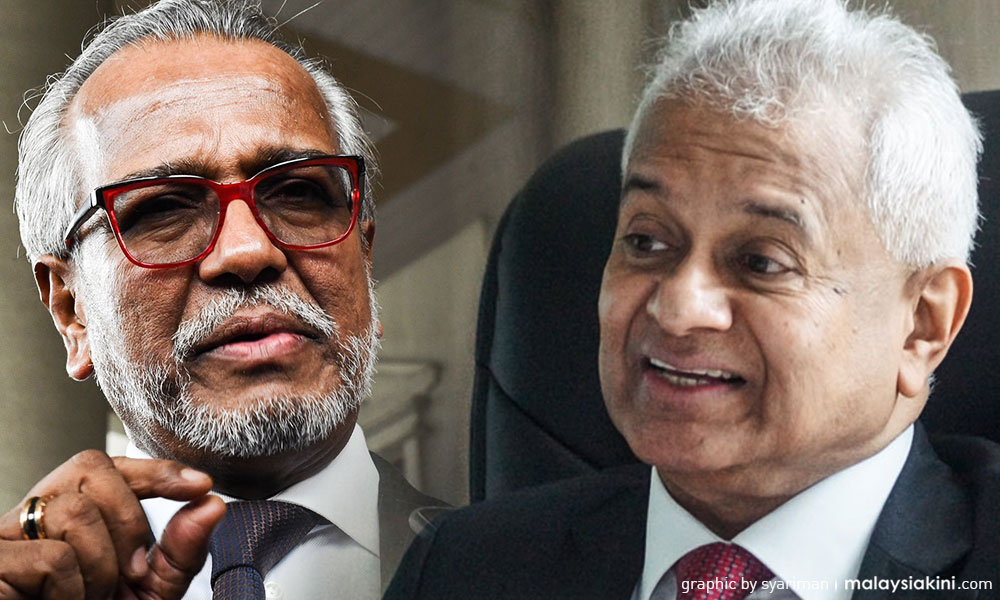April 8, 2019
Mahathir justified in pulling out of Rome Statute
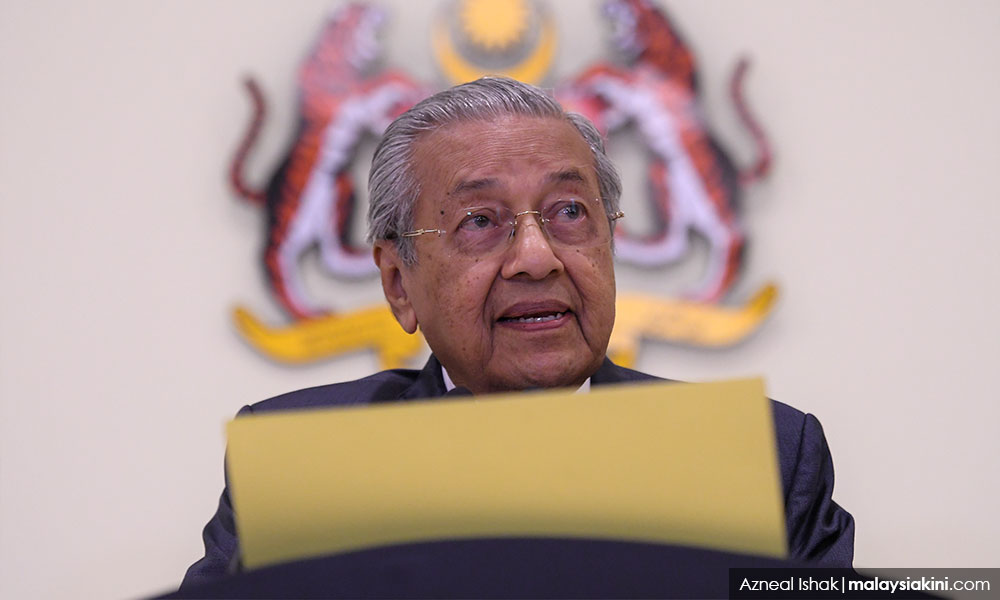
“And if we find whoever breaches the law – we don’t care who they are – we will take action, whether they are prince or pauper, we will take action. That is our stand.”
– Dr Mahathir Mohamad
COMMENT | If certain quarters assumed that “forcing” the Pakatan Harapan government to pull out of the Rome Statute was some sort of victory, reading the transcript of Mahathir’s press conference should be a reality check for them. If anything, the pugilistic response – even in defeat – is more of a slap in the face than anything in the Rome Statute.

Some people are disappointed that Harapan pulled out of the Rome Statute. Some people are disappointed with the non-Malay political operatives for supporting this move. It makes the Harapan government look weak when the far right forces, in collusion with certain members of the royal houses, disrupt a democratically elected government from carrying out policy decisions.
Foreign Minister Saifuddin Abdullah rightly points out that the deep state – my term is the deep Islamic state – is mounting a vigorous offensive to usurp the democratic process in Malaysia.
This anti-democratic element must feel great that they have managed to usurp the legitimate aspirations of people who voted for the Harapan government.
This anti-democratic element must feel great that they have managed to derail a democratic process in the name of race and religion
This anti-democratic element must feel great that they have managed to make the prime minister of this country bend to their will and, of course, the non-Malay political operatives sit silently while Malay power structures flex their muscles.
This may sound strange, but I have a lot of sympathy for Lim Kit Siang when he says this decision was forced upon them. This Rome Statute fiasco was initiated by elements who are not democratically elected, but who have the influence to plunge this country into a protracted constitutional crisis that could derail any form of reform, however small.
While Kit Siang wonders how people’s minds could be poisoned, the reality is that the “people” had nothing to do with this. The Rome Statute issue was not fuelled by populist sentiment in the Malay polity, but rather the machinations of certain individuals to erode the legitimacy of a democratically-elected government.
There was nothing Harapan political operatives could say or do, which would mitigate the damage done by individuals who have a stake in the intersection between commerce and royal prerogative, which has had a deleterious effect on the political process, but which has been condoned by the Malay political elite (in collaboration with non-Malay power structures) since independence.
Which is why Anwar’s response to this plot to destabilise democracy was predictable and disappointing. Mahathir was not “wise” to withdraw from this. It is never wise to withdraw from something that Anwar admits “is good for reforms, transparency and rule of law”.
Claiming that some concerns should be “assuaged” is bone-headed since we know, Harapan knows and anyone with a smidgen of intelligence knows, that there were never any legitimate concerns, only the concerns of individuals who decided to challenge a democratically elected leader, using the toxic politics of race and religion.
This is the issue here. What we have is a member of a royal house leading the charge to usurp the democratic process. The only options were:
(1) Confront those institutions which are hampering reforms head-on by signing the statute and probably creating a manufactured constitutional crisis (a royal showdown), or
(2) Reminding those people that even if the statute is abandoned, they will still be held accountable for any malfeasance they commit and the false hope that their station in life protects them from legal consequences is just that, a false hope.
The only viable option is to play the shadow game until Harapan gets its acts together by demonstrating that, even without the symbolism of such international treaties, it is willing to carry out reforms which, so far, Harapan has lacked the backbone to do.
This is payback for the Malay political elite who, for years played this race and religion game, are now confronted by genuine democratic impulses of a Malaysian polity restless for real change and stymied by the very institutions they defended for years.
Now, if Bersatu is the sole protector of race and religion that it wants to be, then things would be different. Suddenly the people would be knowledgeable and those individuals whose agenda is to stir up trouble would be bereft of political influence.
This is why Bersatu strategists and political operatives have been texting and calling me, pointing to this situation as the perfect example as to why Bersatu needs to beef up its presence in Harapan.
The prime minister is on his own here. While I may have a little sympathy for the ruling Harapan elite, this is the fault of Malay power brokers who have weaponised institutions and religion for years against the rakyat.
For years they used the royal institutions for their own purposes. Now the royal institution is flexing its muscles to curtail the agenda of democratically-elected leaders because the reality is that Harapan does not have the majority of the Malay community behind them.

If you think the attacks against the prime minister is getting harsh, think back on the fascists’ attacks against someone like Fadiah Nadwa Fikri (above) who is being investigated by the Harapan state for comments made about royalty.
In order to take on the anti-democratic forces in this country, Harapan has to commit to serious reforms, many of which would lay bare the toxic confluence of religious, racial, royal and corporate power in this country.
They have to stop demonising citizens like Fadiah Nadwa and commit to an agenda of reform, which does not necessarily mean signing on to international treaties, but rather, legislating and creating policies that empower the people and not merely anti-democratic institutions.
If Harapan does this, it will not be forced to do anything by the anti-democratic forces in this country and Malaysians will come to understand that all roads lead to Rome.
S THAYAPARAN is Commander (Rtd) of the Royal Malaysian Navy. A retired barrister-at-law, he is one of the founding members of the National Patriots Association.
The views expressed here are those of the author/contributor and do not necessarily represent the views of Malaysiakini.


